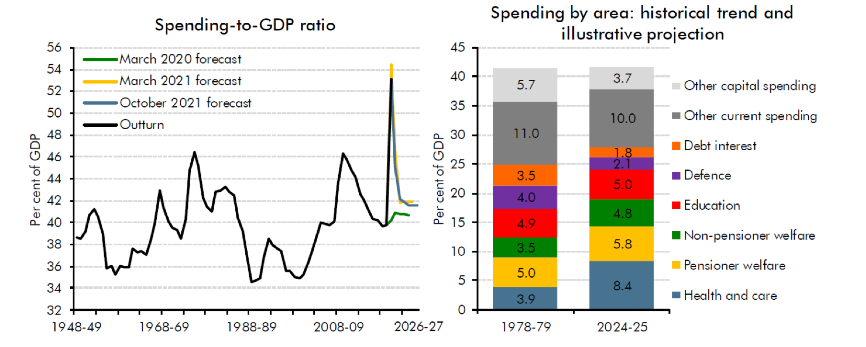Changing fiscal orthodoxy

Changing fiscal orthodoxy
Shifting sands of fiscal wisdom, and a repertoire of repsectable fiscal ideas
Economic narratives are developed against a backdrop of prevailing economic ideas. Technocratic economic governance often assumes a singular codified body of economic policy knowledge. It presents economic policy decision-making as a technical pursuit, based on a wide professional consensus, shorn of fundamentally different ideological or political views. The language and register of economic analysis, and the disciplinary norms of Economics, conspire to reinforce this arid impression.
However, the sands of ‘sound’ fiscal policy were already shifting in the wake of the 2008 crash. This had expanded the variety of respectable economic opinion on key issues such as counter-cyclical fiscal policy’s potency and its suitability and efficacy as an economic stabilisation or crisis response tool. The ebb and flow of fiscal orthodoxy. There have been broad transformations in the early 21st Century. Received fiscally conservative certainties of iron discipline and balanced budgets were challenged. Instead of being set in stone, the fiscal discussion navigated shifting sands. There has been a rehabilitation of fiscal policy as integral to counter-cyclical economic stabilisation. This reached its culmination with COVID.
The IMF, through its research on fiscal policy effects, became imbricated in the rethink of post-crash macroeconomic orthodoxy (Clift 2018). The IMF’s ‘mea culpa’ moment in October 2012 recognised that fiscal multipliers were higher than the Fund had previously acknowledged, especially in a recession (IMF 2012: 43). Fiscal policy was recognised as a more potent and effective countercyclical and crisis management tool. More recently, the OECD have travelled a similar path to a thorough rehabilitation of fiscal policy efficacy and activism (OECD Outlook March 2022).

